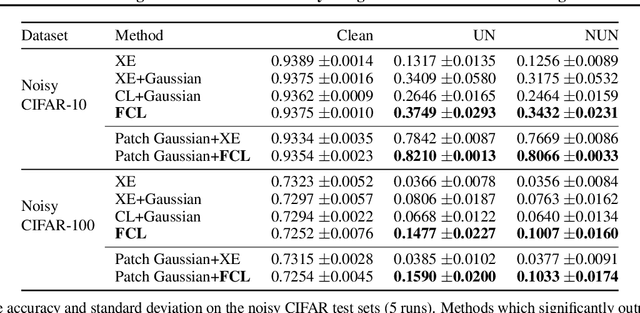Balancing Robustness and Sensitivity using Feature Contrastive Learning
Paper and Code
May 19, 2021



It is generally believed that robust training of extremely large networks is critical to their success in real-world applications. However, when taken to the extreme, methods that promote robustness can hurt the model's sensitivity to rare or underrepresented patterns. In this paper, we discuss this trade-off between sensitivity and robustness to natural (non-adversarial) perturbations by introducing two notions: contextual feature utility and contextual feature sensitivity. We propose Feature Contrastive Learning (FCL) that encourages a model to be more sensitive to the features that have higher contextual utility. Empirical results demonstrate that models trained with FCL achieve a better balance of robustness and sensitivity, leading to improved generalization in the presence of noise on both vision and NLP datasets.
 Add to Chrome
Add to Chrome Add to Firefox
Add to Firefox Add to Edge
Add to Edge